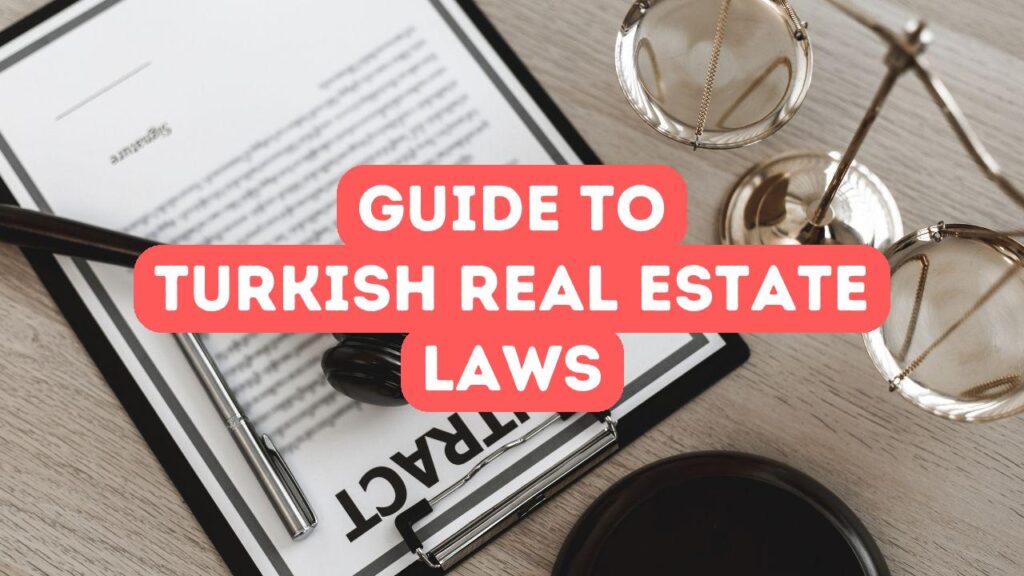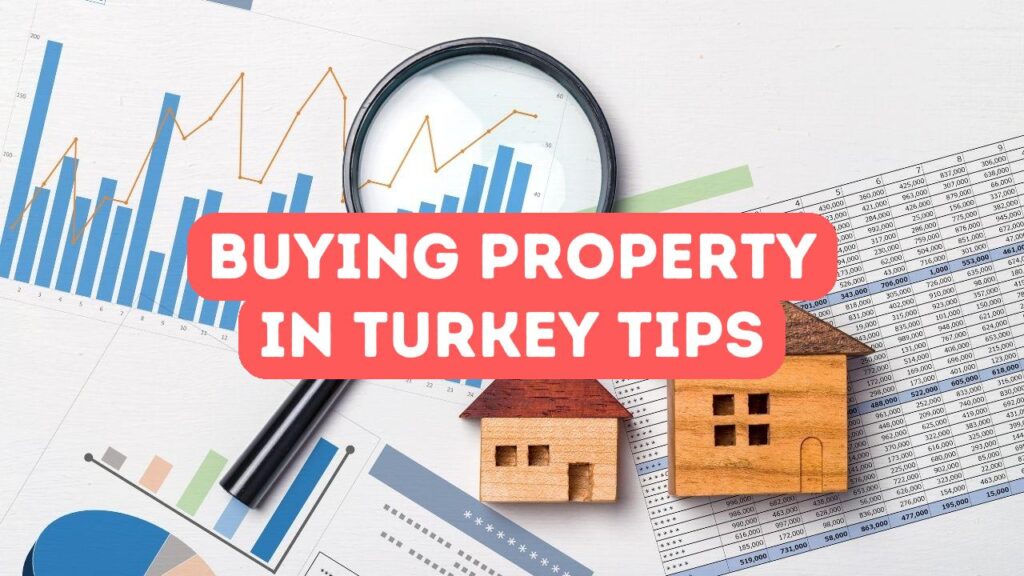Navigating the intricacies of Turkish real estate laws can be a daunting task for foreigners looking to invest or settle in Turkey. Understanding the legal framework is crucial for making informed decisions that align with both personal and financial goals. At Gordion Partners, we recognize the importance of having a clear and comprehensive guide to these regulations in order to facilitate a smooth and secure transaction process. In this guide, we will provide you with essential insights and practical advice to help you grasp the fundamentals of Turkish property laws, ranging from property acquisition to ownership rights and tax implications. Whether you are an investor seeking lucrative opportunities or an expatriate planning to make Turkey your new home, our expertise will ensure you have a seamless experience.
Understanding Key Regulations for Property Investment in Turkey
Understanding the key regulations for property investment in Turkey begins with familiarizing oneself with the legal requirements for foreign buyers. Foreign nationals are generally allowed to purchase real estate in Turkey, but there are some restrictions, such as limitations on land size and certain zones where properties cannot be bought. It is also essential to obtain a Title Deed (Tapu) from the Land Registry Office, which serves as official proof of ownership. Additionally, securing a property valuation report is mandatory for the transaction process, ensuring that the property is worth the investment amount stated. Navigating these regulatory steps with the help of professional advisors like Gordion Partners will ensure compliance and safeguard your investment.
When considering property investment in Turkey, it’s vital to understand the taxation framework that applies to real estate transactions. There are several taxes and fees to consider, including the Title Deed Tax, which is calculated as a percentage of the property’s declared value, and the annual Property Tax, imposed by local municipalities. Additionally, if you sell the property within five years of acquisition, you may be subject to Capital Gains Tax, depending on the profit made from the sale. Accurate knowledge of these tax obligations can help you budget more effectively and avoid unforeseen financial pitfalls. Consulting with a knowledgeable advisory firm like Gordion Partners ensures you’re well-prepared to meet these legal and financial requirements, thus optimizing your investment strategy.
In addition to understanding the legal and tax implications of property investment in Turkey, navigating the due diligence process is equally important. Conducting thorough checks on the property’s legal status, such as verifying if there are any existing mortgages, liens, or legal disputes, is imperative to avoid future complications. Ensuring the property’s zoning compliance and confirming that all necessary permits and licenses are in order are other critical steps. Due diligence also involves assessing the property’s infrastructure, accessibility, and potential for value appreciation. Collaborating with experts like Gordion Partners can streamline this process, providing you with detailed reports and professional guidance to make well-informed investment decisions. This comprehensive approach minimizes risks and maximizes your potential returns, ensuring a successful property acquisition journey in Turkey.
Navigating Legal Requirements for Foreign Property Buyers
For foreign property buyers, understanding the legal requirements in Turkey is paramount. The process begins with obtaining a Foreign Identity Number, a mandatory step for any foreign national looking to buy property. Additionally, it is essential to confirm whether the property is located in a military or special security zone, as some areas may restrict foreign ownership. A thorough title deed check (Tapu) is also crucial to ensure there are no outstanding debts or legal disputes associated with the property. Engaging a reputable lawyer who specializes in Turkish real estate laws can provide invaluable assistance in navigating these regulations, ensuring that all necessary documentation is in order and that your investment is secure.
Once these initial requirements are met, it’s crucial to understand the financial obligations involved in purchasing property in Turkey. Buyers must pay a property transfer tax, which is generally 4% of the declared property value, and this cost is typically split between the buyer and seller. Additionally, there are notary fees, title deed fees, and various administrative costs that must be factored into the overall budget. It’s also essential to open a Turkish bank account, as monetary transactions for property purchases must be conducted through these accounts. Moreover, securing earthquake insurance for your newly acquired property is not only a legal requirement but also a prudent step to safeguard your investment. Being aware of these financial commitments from the outset will help ensure a smooth and hassle-free property purchasing process.
After successfully navigating the preliminary legal and financial requirements, the final step for foreign property buyers in Turkey involves registering your property. This process is undertaken at the Land Registry Office where the property transfer is officially recorded. Both the buyer and seller, or their authorized representatives, must be present to complete the transaction. To ensure a smooth registration, it’s important to have all necessary documents prepared, including the signed sales contract, proof of identity, tax payment receipts, and earthquake insurance policy. Additionally, an official translator might be needed if you do not speak Turkish fluently. Once the registration is finalized, the title deed (Tapu) will be issued in your name, legally confirming your ownership. Making sure this process is meticulously followed can prevent future disputes and solidify your investment in Turkish real estate.
Essential Insights into Property Ownership Rights in Turkey
In Turkey, property ownership rights are comprehensive and transparent, but require careful navigation to avoid potential pitfalls. Foreigners are allowed to acquire real estate in Turkey, with some restrictions such as not purchasing properties in military zones or exceeding 10% of the land area of a district. The title deed, or “Tapu,” is the official document confirming ownership and must be registered at the local land registry office. Familiarizing yourself with relevant laws, such as the Turkish Code of Obligations and Land Registry Law, is imperative for ensuring your investment is legally sound. At Gordion Partners, we emphasize thorough due diligence, including verifying the property’s legal status and ensuring it is free from encumbrances, to safeguard our clients’ investments.
Foreigners should also be aware of the inheritance laws governing property in Turkey. Upon the death of a property owner, Turkish law dictates that the property passes to the heirs as per the Turkish Civil Code, which may differ from inheritance laws in the owner’s home country. It’s essential to understand that in Turkey, legal heirs include both direct descendants and potentially other family members, which can complicate inheritance matters. To mitigate potential disputes and ensure a seamless transfer of property, Gordion Partners advises drafting a will that is recognized under Turkish law. Additionally, consulting with legal experts who specialize in Turkish inheritance law can provide clarity and peace of mind, ensuring that your assets are distributed according to your wishes.
It is also crucial to comprehend the tax implications associated with property ownership in Turkey. Purchasing real estate involves several taxes and fees, such as the property acquisition tax, typically 4% of the property’s value, divided equally between the buyer and the seller. Annual property taxes vary depending on the location and type of property, generally ranging from 0.1% to 0.6%. Moreover, if you decide to sell your property, capital gains tax may apply, with exemptions available after holding the property for five years. At Gordion Partners, we offer tailored advice to help minimize tax liabilities and ensure compliance with all legal requirements. By staying informed of the latest regulations and leveraging our comprehensive services, you can navigate the financial aspects of property ownership with confidence and ease.






